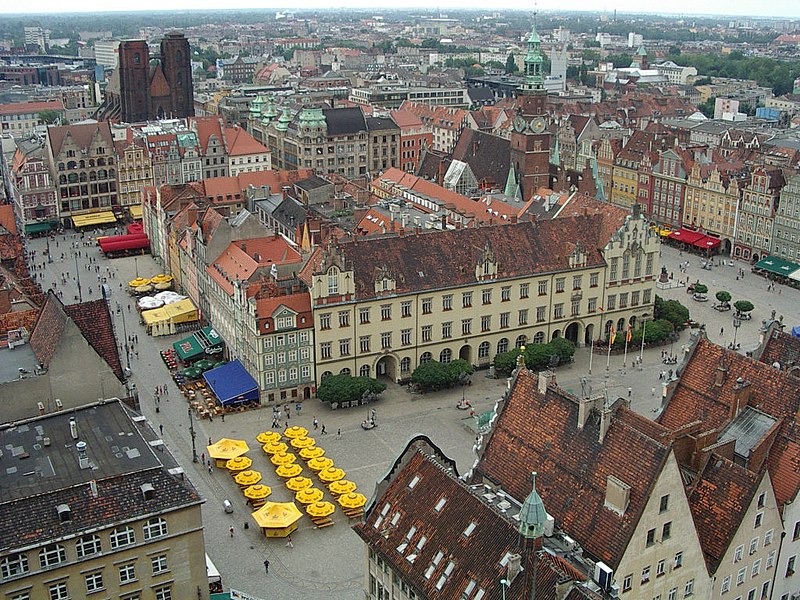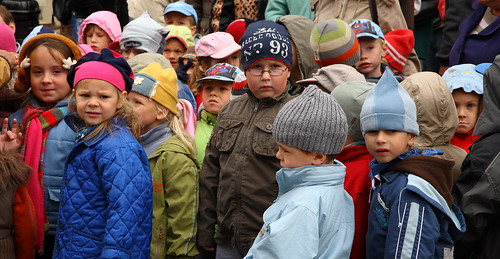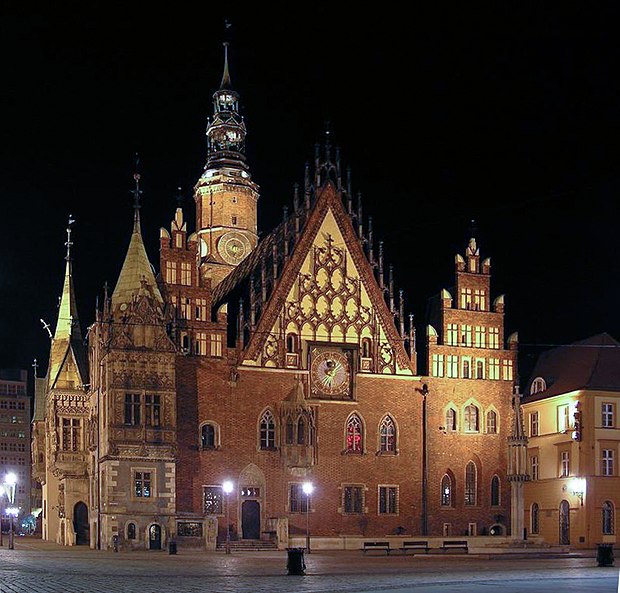Adopting from Poland
Notice: As of July 14, 2014, all individuals and agencies facilitating international adoptions must be in compliance with the Intercountry Universal Accreditation Act.
Contents
Hague Convention Information
Poland is party to the Hague Convention on Protection of Children and Co-operation in Respect of Intercountry Adoption (Hague Adoption Convention). Intercountry adoption processing in Hague countries is done in accordance with the requirements of the Convention; the U.S. implementing legislation, the Intercountry Adoption Act of 2000 (IAA); and the IAA’s implementing regulations, as well as the implementing legislation and regulations of Poland.
U.S. IMMIGRATION REQUIREMENTS FOR INTERCOUNTRY ADOPTIONS
To bring an adopted child to the United States from Poland, you must meet eligibility and suitability requirements. The U.S. Department of Homeland Security, U.S. Citizenship and Immigration Services (USCIS) determines who can adopt under U.S. immigration law.
Additionally, a child must meet the definition of Convention adoptee under U.S. law in order to immigrate to the United States on an IH-3 or IH-4 immigrant visa.
Who Can Adopt
In addition to the U.S. requirements, prospective adoptive parents need to meet Poland’s requirements to adopt a child from Poland:
Residency
There are no residency requirements for prospective adoptive parents.
Age of Adopting Parents
Under Polish law, there are no formal, legal restrictions on the age of prospective adoptive parents. In practice, however, prospective adoptive parents may be up to 40 years older than the child.
Marriage
Both married and single prospective adoptive parents are permitted to adopt a child in Poland. Poland does not recognize same-sex marriage or civil unions; therefore same-sex couples are unable to adopt a child in Poland.
Income
Poland does not have any specific income requirements for intercountry adoptions.
Other
Although Roman Catholicism is Poland's official religion, non-Catholic prospective adoptive parents are permitted to adopt a child in Poland. However, one of the three adoption centers in Poland deals only with Catholic families.
Who Can Be Adopted
Because Poland is party to the Hague Adoption Convention, children from Poland must meet the requirements of the Convention in order to be eligible for adoption. For example, the adoption may take place only if the competent authorities of Poland have determined that placement of the child within Poland has been given due consideration and that an intercountry adoption is in the child’s best interests. In addition to Poland’s requirements, a child must meet the definition of Convention adoptee to be eligible for an immigrant visa that will allow you to bring him or her to the United States.
At the present time, Polish law requires both adoptive parents to have met the child prior to adoption.
Only adoption centers authorized by the Minister of Labor and Social Policy can evaluate a Polish child’s eligibility for intercountry adoption. At present, only the Mazowieckie Regional Adoption Center (former Public Adoptive-Guardian Center - Publiczny Osrodek Adopcyjno-Opiekunczy) has such authorization. The Mazowieckie Regional Adoption Center maintains a database of all children residing in children homes or foster families in Poland who are available for international adoption because their parents have died, have relinquished all rights to them, or their right were involuntarily terminated.
ELIGIBILITY REQUIREMENTS:
Relinquishment: A single mother may relinquish her parental rights in the family court no earlier than six weeks after giving birth. The court will make the final decision about the termination of parental rights.
Abandonment: The majority of Polish children eligible for intercountry adoption have been separated from their biological parents, by the court’s decision to terminate their parental rights and to place the children in the foster care.
Age of Adoptive Child: Polish law allows for children younger than age 18 to be adopted. Children older than 13 must give their consent for adoption. (Note: Under U.S. immigration laws, children adopted through the Convention process must be under the age of 16 at the time a petition is filed on their behalf, unless they are the older sibling under age 18 of a child also adopted by the same prospective adoptive parents.)
Sibling Adoptions: It is usually more difficult to find a suitable family domestically to adopt siblings; therefore, these children are often eligible for intercountry adoption. Sibling groups, which can range from two to six children, are generally not separated. An adopting parent would be immediately notified and have priority to adopt if a sibling of a child already adopted becomes eligible for adoptions.
Special Needs or Medical Conditions: Young and healthy children are most often placed with Polish families. Children with medical conditions or special needs are more likely to be placed for intercountry adoption, even if they are very young.
Waiting Period or Foster Care: Prospective parents adopting children in Poland are not granted temporary care under Polish law. Children remain in state care or foster care until the adoption is finalized. While there is no standard or mandatory waiting period between matching and the bonding period, parents typically wait about six months until the first hearing before a judge. Afterward, the mandatory bonding period lasts between two and four weeks and the standard appeals period following the judge's approval of the adoption is three weeks. In addition, the civil documents necessary for the child to travel may take between two and three weeks.
How to Adopt
Adoption Authority
Poland’s Adoption Authority
Ministry of Labor and Social Policy Department of Family Policy 11 Nowogrodzka Street 00-513 Warsaw, Poland Tel: +48 (22) 529-0666 or 0665 Fax: +48 (22) 429-0661 Email: Aleksandra.kowalczyk@mpips.gov.pl Internet: Poland's Adoption Authority
The Process
Because Poland is party to the Hague Adoption Convention, adopting from Poland must follow a specific process designed to meet the Convention’s requirements. A brief summary of the Convention adoption process is given below. You must complete these steps in the following order so that your adoption meets all necessary legal requirements. Adoptions completed out of order may result in the child not being eligible for an immigrant visa to the United States.
- Choose a U.S. accredited or approved adoption service provider
- Apply to USCIS to be found eligible to adopt
- Be matched with a child by authorities in Poland
- Apply to USCIS for the child to be found eligible for immigration to the United States and receive U.S. agreement to proceed with the adoption
- Adopt the Child in Poland
- Obtain a U.S. immigrant visa for your child and bring your child home
1. Choose a U.S. Accredited or Approved Adoption Service Provider
The recommended first step in adopting a child from Poland is to select an adoption service provider in the United States that has been accredited or approved to provide services to U.S. citizens in Convention cases. Only accredited or approved adoption services providers act as the primary provider in your case. The primary adoption service provider is responsible for ensuring that all adoption services in the case are done in accordance with the Hague Adoption Convention and U.S. laws and regulations. Learn more about Agency Accreditation.
Agencies that want to operate in Poland must receive an authorization to do so from the Polish Central Authority (Ministry of Labor and Social Policy).
There are three adoption centers in Poland that are authorized to qualify foreign prospective parents for adoption in Poland and match them with children available for intercountry adoption. These centers, all located in Warsaw, are: the Mazowieckie Regional Adoption Center (formerly known as the Public Adoptive-Guardian Center), the National Adoptive-Guardian Center of the Children’s Friends Society, and the Catholic Adoptive-Guardian Center. The Hague-accredited U.S. adoption service providers may submit dossiers to these centers only.
Polish adoption law does not explicitly forbid directed or private adoptions. However, Polish law only allows intercountry adoption of orphans listed by the Public Adoptive-Guardian Center. This Center will only list orphans for intercountry adoption for whom no adopting Polish family can be found. In practice, it is extremely difficult to arrange a directed adoption between a birth parent and prospective adoptive parent without violating Polish law.
Before considering “direct” or “private” adoptions in any country, please contact the Office of Children’s Issues, Department of State.
2. Apply to USCIS to be Found Eligible to Adopt
After you choose an accredited adoption service provider, you apply to be found eligible to adopt (Form I-800A) by the U.S. Government, Department of Homeland Security, U.S. Citizenship and Immigration Services (USCIS). Learn how.
Once the U.S. Government determines that you are "eligible" and "suitable" to adopt, you or your agency will forward your information to the adoption authority in Poland. Poland's adoption authority will review your application to determine whether you are also eligible to adopt under Polish law.
3. Be Matched with a Child in Poland:
If both the United States and Poland determine that you are eligible to adopt, and the Polish adoption authorities have determined that a child is available for adoption and that intercountry adoption is in that child’s best interests, the adoption center that you have chosen to work with in Poland will provide you with a referral for a child. The referral is a proposed match between you and a specific child based on a review of your dossier and the needs of a specific child in Poland. The adoption center in Poland will provide a background study and other information, if available, about the child to help you decide whether to accept the referral or not. Each family must decide for itself whether or not it will be able to meet the needs and provide a permanent home for a particular child. If you accept the referral, the adoption service provider communicates that to the chosen adoption center in Poland. Learn more about this critical decision.
4. Apply to USCIS for the Child to be Found Eligible for Immigration to the United States and Receive U.S. Agreement to Proceed with the Adoption:
After you accept a match with a child, you will apply to the U.S. Department of Homeland Security, U.S. Citizenship and Immigration Services (USCIS) for provisional approval for the child to immigrate to the United States (Form I-800). USCIS will make a provisional determination as to whether the child meets the definition of a Convention Adoptee and will be eligible to enter the United States and reside permanently as an immigrant.
After provisional approval of Form I-800, your adoption service provider or you will submit a visa application to the Consular Section of the U.S. Embassy in Warsaw is responsible for issuing immigrant visas to children from Poland. A consular officer will review the Form I-800 and the visa application for possible visa ineligibilities and advise you of options for the waiver of any noted ineligibilities.
WARNING: The consular officer will send a letter (referred to as an “Article 5 Letter”) to the Poland’s Central Authority in any intercountry adoption involving U.S. citizen parents and a child from Poland where all Convention requirements are met and the consular officer determines that the child appears eligible to immigrate to the United States. This letter will inform the Poland’s Central Authority that the parents are eligible and suited to adopt, that all indications are that the child may enter and reside permanently in the United States, and that the U.S. Central Authority agrees that the adoption may proceed.
Do not attempt to adopt or obtain custody of a child in Poland before a U.S. consular officer issues the Article 5 Letter in any adoption case.
Remember: The consular officer will make a final decision about a child’s eligibility for an immigrant visa later in the adoption process.
5. Adopt the Child (or Gain Legal Custody) in Poland
Remember: Before you adopt (or gain legal custody of) a child in Poland, you must have completed the above four steps. Only after completing these steps, can you proceed to finalize the adoption or grant of custody for the purposes of adoption in Poland.
The process of finalizing the adoption in Poland includes the following:
- Role of Adoption Agencies: The Central Authority (the Ministry of Labor and Social Policy) reviews the child’s and prospective adoptive parent's documents and, after receiving the Article 5 Letter from the U.S. Embassy, makes the final determination to adopt. The Central Authority issues the formal permission to continue the adoption process and the prospective adoptive parents take their adoption case to court.
- Role of the Court: Prospective adoptive parents file a formal request to adopt the child with the Polish family court in the region where the child resides. A copy of the state adoption law (and Polish translation) where the prospective adoptive parents reside must also be included with the filing. Polish law requires all prospective adoptive parents to be present during the final two adoption hearings, though the judge has the discretion to waive the requirement of the first of these two final hearings. At the first hearing, the judge will grant permission for the prospective adoptive parents to visit with the child daily for a two- to four-week period. The bonding period is mandatory and evaluated by a local adoption center psychologist. At the final hearing, the judge decides whether to grant the adoption and full custody. It is followed by a 21-day appeal period which may be shortened to 14 days at the judge's discretion. The court issues both the final adoption decree and the Article 23 Hague Certificate.
- Adoption Fees: In the adoption services contract signed at the beginning of the adoption process, the agency will itemize the fees and estimated expenses related to the adoption process. Some of the fees specifically associated with adopting from Poland include:
- 1. Complete form of the birth certificate - 35 PLN per copy;
- 2. Short form of the birth certificate - 20 PLN per copy;
- 3. Polish temporary passport - 30 PLN;
- 4. Visa and passport photos – about 100 PLN;
- 5. Immigrant visa fee - 230 USD;
- 6. Medical exam - 250 PLN;
- 7. Translations of Polish documents into English - 30-40 PLN per page;
- 8. Court interpretation services – 150-200 PLN per hour;
- 9. Formal psychological evaluation of the bonding process – 2,000 – 2,500 PLN. In some areas of Poland, adoptive parents may also be financially responsible for the housing costs of the child in the orphanage, from the time n adoption is finalized through the child’s removal from the orphanage. It is customary, but not required, for adoptive parents to make donations in the amount of 500-1,000 PLN to the adoption center that assisted in the adoption processing.
- Documents Required: Some documents required include:
- 1. Adoption application;
- 2. Birth certificate(s) of the prospective adoptive parent(s);
- 3. Marriage certificate(s) and proof of termination of any previous marriage(s), if applicable;
- 4. Criminal records clearance check;
- 5. Confirmation of financial status;
- 6. Proof of citizenship;
- 7. Certificate attesting to good physical and mental health of the prospective adoptive parents – medical records;
- 8. Approved home study prepared by licensed agency with a recommendation of a U.S. Hague accredited adoption service provider; and
- 9. Approved I-800A petition. NOTE: Additional documents may be requested.
- Authentication of Documents: The United States and Poland are parties to the Hague Apostille Convention. U.S. public documents may be authenticated with Apostilles by the appropriate U.S. Competent Authority
6. Obtain an Immigrant Visa for your Child and Bring Your Child Home
Now that your adoption is completed, there are a few more steps to take before you can head home. Specifically, you need to apply for three documents before your child can travel to the United States:
- 1. Birth Certificate
If you have finalized the adoption in Poland, you will firstneed to apply for a new birth certificate for your child so that you can later apply for a passport.
With the final court decree, you may apply to the civil registry for a complete birth certificate ("zupełny act urodzenia") with the child’s new name and listing the adoptive parents as parents. This document is typically ready within one to two days. Applications should be made at the office where the child's birth was originally registered.
- 2. Polish Passport
Your child is not yet a U.S. citizen, so he/she will need a travel document or passport from Poland.
After receiving the new birth certificate, the parents must apply for a child’s new identification number, or "PESEL". Once it has been assigned, both parents may apply for a Polish passport from either the local passport office where the child was adopted or the main passport office in Warsaw. The PESEL number, birth certificate, parents' passports, passport application and fee will be required. Within seven days of application, adopted children are generally issued a temporary Polish passport with a one-year validity for travel.
- 3. U.S. Immigrant Visa
After you obtain the new birth certificate and passport for your child, you also need to finalize your application for a U.S. visa for your child from the U.S. Embassy in Warsaw. After the adoption is granted, visit the U.S. Embassy for final review of the case, issuance of a U.S. Hague Adoption Certificate, final approval of Form I-800, and to obtain your child’s immigrant visa. This immigrant visa allows your child to travel home with you. As part of this process, the consular officer must be provided the “Panel Physician’s” medical report on the child if it was not provided during the provisional approval stage. Read more about the Medical Examination.
Child Citizenship Act
For adoptions finalized abroad prior to the child’s entry into the United States: A child will acquire U.S. citizenship upon entry into the United States if the adoption was finalized prior to entry and the child otherwise meets the requirements of the Child Citizenship Act of 2000.
Traveling Abroad
Applying for Your U.S. Passport
A valid U.S. passport is required to enter and leave Poland. Only the U.S. Department of State has the authority to grant, issue, or verify U.S. passports. Getting or renewing a passport is easy. The Passport Application Wizard will help you determine which passport form you need, help you to complete the form online, estimate your payment, and generate the form for you to print-all in one place.
Obtaining Your Visa
In addition to a U.S. passport, you also need to obtain a visa. A visa is an official document issued by a foreign country that formally allows you to visit. Where required, visas are attached to your passport and allow you to enter a foreign nation. To find information about obtaining a visa for Poland, see the Department of State's Country Specific Information.
Staying Safe on Your Trip
Before you travel, it's always a good practice to investigate the local conditions, laws, political landscape, and culture of the country. The State Department is a good place to start. The Department of State provides Country Specific Information for every country of the world about various issues, including the health conditions, crime, unusual currency or entry requirements, and any areas of instability.
Staying in Touch on Your Trip
When traveling during the adoption process, we encourage you to register your trip with the Department of State. Travel registration makes it possible to contact you if necessary. Whether there's a family emergency in the United States, or a crisis in Poland, registration assists the U.S. Embassy or Consulate in reaching you. Registration is free and can be done online.
After Adoption
What resources are available to assist families after the adoption?
Many adoptive parents find it important to find support after the adoption. Take advantage of all the resources available to your family -- whether it's another adoptive family, a support group, an advocacy organization, or your religious or community services.
Here are some good places to start your support group search:
Child Welfare Information Gateway
North American Council on Adoptable Children
Adoption Services Support Group for Adopting Persons
Contact Information
U.S. Embassy in Poland
IV Unit/Adoptions 12 Piekna Street 00-540 Warsaw, Poland Tel: +48 (22) 625-1401 or +28 (22) 504-2106 Fax: +48 (22) 504-2039 Email: adoptwrw@state.gov Internet: U.S. Embassy Poland
Poland’s Adoption Authority
Ministry of Labor and Social Policy Department of Family Policy 11 Nowogrodzka Street 00-513 Warsaw, Poland Tel: +48 (22) 529-0666 or 0665 Fax: +48 (22) 429-0661 Email: Aleksandra.kowalczyk@mpips.gov.pl Internet: [Poland's Adoption Authority
Poland’s Authorized Adoption Centers
Mazowieckie Regional Adoption Center ul. Nowogrodzka 75 02-018 Warszawa Tel/fax: +48 (22) 622-0370, 0371, or 0372 Email: woa.warszawa@mcps.com.pl Internet: Poland's Authorized Adoption Centers
National Adoptive-Guardian Center of the Children's Friends Society
(Towarzystwo Przyjaciol Dzieci – TPD) Ul. Krakowskie Przedmiescie 6 00-325 Warszawa Tel: +48 (22) 425-4677 or 4688 Fax: +48 (22) 827-7813 Email: adopcja@tpdzg.org.pl
Catholic Adoptive-Guardian Center (Katolicki Osrodek Adopcyjno-Opiekunczy)
Ul. Grochowska 194/196 04-357 Warszawa Fax: (48)(22) 818-5430 Email: katolickiosrodek@interia.pl Internet: CJA
Embassy of Poland
2224 Wyoming Av. NW Washington, D.C. 20008 Tel: (202) 499-1700 Email: washington.consular@msz.gov.pl Internet: Embassy of Poland
Poland also has consulates in: Chicago, Los Angeles, and New York.
Office of Children’s Issues
U.S. Department of State CA/OCS/CI SA-17, 9th Floor Washington, DC 20522-1709 Tel: 1-888-407-4747 Email: AdoptionUSCA@state.gov Internet: U.S. Department of State
U.S. Citizenship and Immigration Services (USCIS)
For questions about immigration procedures: National Customer Service Center (NCSC) Tel: 1-800-375-5283 (TTY 1-800-767-1833) Internet: USCIS
For questions about filing a Form I-800A or I-800 petition:
National Benefits Center
Tel: 1-877-424-8374 (toll free); 1-816-251-2770 (local)
Email: NBC.Adoptions@DHS.gov
SOURCE
Intercountry Adoption, Bureau of Consular Affairs. U.S. Department of State Country Information[1]










